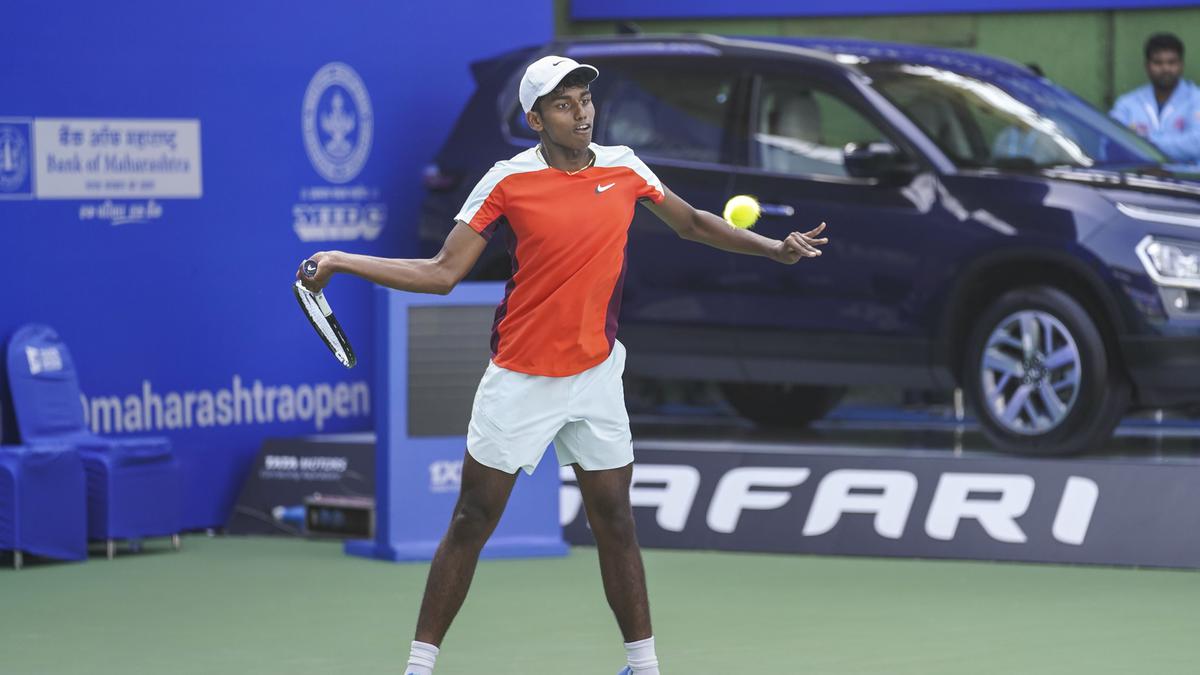Manas Dhamne can become Mr. Dependable of Indian tennis, says Davis Cup coach Ashutosh Singh
Manas Dhamne could be the answer to Indian tennis’ desperate search for ‘Mr. Dependable’, reckons new Davis Cup coach Ashutosh Singh, who is mighty impressed with the teenager’s diligent approach and workmanlike attitude.
Ashutosh, who replaced Zeeshan Ali as coach, observed the youngster from Malegaon in Stockholm, where India competed in the Davis Cup Group I tie against Sweden.
Dhamne, 16, did not get to play a match but was part of the squad that travelled to Stockholm along with another youngster, Aryan Shah.
It was a clear sign that the team management and the selectors wanted Dhamne and Shah to have the Davis Cup experience, what it means to be with the national squad and what it takes to represent the country at the World Cup of tennis.
READ | I never disrespect the tennis community, I am part of it: Rohit Rajpal
While India was bested 0-4 by the host, coach Ashutosh chose to see a silver lining in the forgettable outing in Sweden.
“Manas is a quintessential hard worker with a workman like attitude,” said Ashutosh, who is son of former Davis Cupper Balram Singh.
“He just makes eye contact and nods ‘ok’ for any on-court work he’s asked to do.
He has potential to become the Mr Dependable in singles that Indian tennis has long been searching for,” remarked Ashutosh.
“Of course, it’s miles to go but the road he’s taken looks possible with his diligent approach. One has to keep in mind that Manas is only 16 and does need careful supervision in certain aspects of his workload management but it seems he’s in experienced hands at his training base in Italy.”
India have just one player in top-100 in Sumit Nagal (83) and the next best is Ramkumar Ramanathan, way behind at number 309, followed by Sasi Kumar Mukund (365). All others are outside the top-500 bracket.
Dhamne initially trained in Pune but left for Italy to train with renowned coach Riccardo Piatti at the Piatti Tennis Center in Bordighera.
Dhamne made a quick impression when he won the singles titles at the ITF Asia-Oceania Junior (Under-18) championships in 2022, becoming the youngest Indian to win the prestigious event at the age of 14 years and nine months.
A year later, he was given a wild card by the MSLTA for the Tata Open Maharashtra, the ATP 250 event, and again, he impressed with his baseline game and range of strokes against American Michael Mmoh, who was ranked 113 then.
In the season 2024, Dhamne has consistently competed on the ITF Men’s Tour. He himself has not yet broken into top-1000 but already has wins over Nicholas David Ionel (378), Japanese veteran Tatsuma Ito (top-60 a few years back) and Romania’s Vlad Dancu (ranked 565).
Ashutosh said India may have lost badly in Sweden but not everything was bleak.
“I want to bring to the forefront the excitement that the debuts of two young tennis players, which has largely gone unnoticed due to other important discussions going on.”
Talking about Aryan Shah, Ashutosh said he was a “skilful” player.
“Aryan is hard working and a quick learner with an enterprising head on his shoulders. Being inquisitive is a good indication of the eagerness of a young mind to learn, Aryan definitely checks that box.
“Alongside Manas, he brings much-needed unbridled energy of youth into the team. Having played all four junior grand slams in singles, he has foundation of top-tier exposure to firmly understand the points of his game he needs to work on.”
Ashutosh had an interesting take on how India’s junior players approach the domestic tournaments.
He said it was worrying that many players, equipped with talent and the game, were not succeeding, simply because they were burning themselves out by playing more tournaments than necessary.
“Till U12, players shouldn’t play more than 12 weeks. U14 also should be 15-16 weeks because each player plays two age groups, and they end playing almost 30-40 weeks per year. So, there is no time for working on the game and fitness.
“Over exposure to competition leads to early burnout. Low quality inconsequential matches are played throughout the year.”


